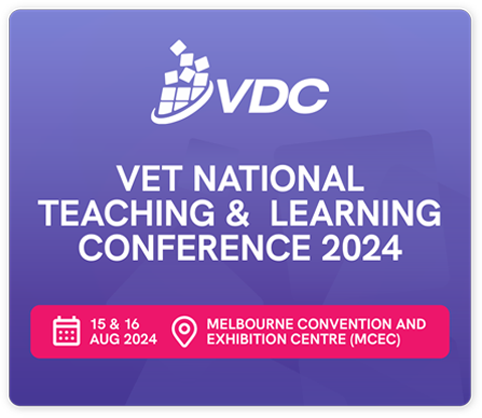This latest RTO focused paper by Hugh Guthrie and Melinda Waters looks at the factors contributing to the delivery of high-quality teaching, learning and assessment. It also focuses on those factors which can adversely affect RTOs’ ability to ‘deliver’ on high quality delivery.
Entitled “Delivering high-quality VET: what matters to RTOs?” it concludes that “the definition of high-quality VET delivery differs among RTO types, depending on their purposes, missions and goals, their student types, the courses and qualifications they offer, and the context in which they operate.” RTO size and diversity of offerings are also factors.
About the project
Hugh and Melinda interviewed 102 people, including 73 individuals working in 44 different RTOs across the four segments of the VET system: public, private, community education and enterprise-based providers. They talked to a number of VET experts, including long standing researchers concerned with VET delivery and those with experience in quality and quality assurance issues. They focused on RTOs because they are “the principal instruments for success for VET students, employers, industries and communities and in implementing the national reforms to the sector currently underway.”
What Hugh and Melinda found
In essence, RTOs have two foci: using information and data to improve their practice and convincing key ‘others’ they are doing a good delivery job. They therefore use a wide range of information and data to evaluate quality, including a mix of quantitative and qualitative data, and information gained informally.
Delivery quality can be a ‘slippery concept’, however, and is probably “most easily described and measured in enterprise-based RTOs, smaller private RTOs and ACE providers, where the scope of delivery tends to be narrower and there is direct oversight of the teaching and learning environment. The resources and expertise required to collect and analyse data can be limited in smaller RTOs though.
On the other hand, “larger RTOs tend to have more resources to collect and analyse data but monitoring quality in organisations supporting a broad spectrum of students with diverse backgrounds and needs, a large suite of courses and qualifications and multiple delivery sites, can be challenging.” They are often more ‘data driven’ than smaller RTOs while still being critically concerned, as smaller RTOs are, with the ‘vibe’ of what is happening within them.
As the report notes:
“The key principles underpinning a definition of high-quality delivery in VET, which are common across the RTOs participating in this project, are that it is:
-
- transformational: how well students are achieving
- student-centred: how well students are supported and encouraged to learn
- fit for purpose: how well stakeholders’ needs and purposes are met
- evolutionary: how well delivery adapts to changing stakeholder and workplace needs.”
In addition, the term ‘delivery’ throughout this report encapsulates “all of the activity involved in producing high-quality learning experiences and outcomes for students; that is to say, not only the more visible teaching, learning and assessment practices, but also the wraparound administrative and support services [including the use of technologies] that enable students to engage fully in learning, which include course planning, design and development.” This is why ‘the vibe’ of the RTO is really important.
Finally, “high-quality delivery depends on many factors, some of which are beyond the control of RTOs. The barriers identified by participating RTOs include a compliance view of quality, funding [levels], the quality of training packages and difficulties in recruiting, developing and retaining teachers and trainers.”
The measures
RTOs use a wide range of information and data to gauge and evaluate the quality of delivery. These include: the impact of delivery on business aims, objectives and purpose: according to RTO type and operating environments; the effectiveness of a course or qualification (measured by enrolments, the extent to which it met student purpose and employer needs, student achievement, completion rates and graduate outcomes); the quality of learning experiences for students (levels of satisfaction, attendance, retention, attrition, engagement, student—teacher ratios and student support. The quality of facilities, equipment and organisational culture is also considered); the impact of delivery on learning (student progress and achievement); the engagement with employers and industry (their involvement in course design and delivery, satisfaction and confidence in an RTO and its students, employment of graduates and work-placement students, repeat business and recommendations to other employers).
Finally, and importantly, it requires capable teachers, trainers and others supporting delivery (the level of their qualifications, industry currency, participation in CPD, levels of satisfaction and engagement with students, in some cases at a team level but mostly at an individual level).
RTOs often have richer data and information than is reported externally, which may be used by regulators and others to judge their ‘quality’. The danger is that the actual quality of what RTOs do may well not be properly recognised by these critical external stakeholders.
Where you can find out more
In addition to the report summarised here, the project also produced another paper last year. Entitled “Unpacking the quality of VET delivery” as highlighted in VDC News here. Hugh and Melinda will also give a webinar on 7 April and you can register for it here. In addition to their presentation, discussants for the webinar will be Jenny Dodd from TDA and Andrew Shea from ITECA.








